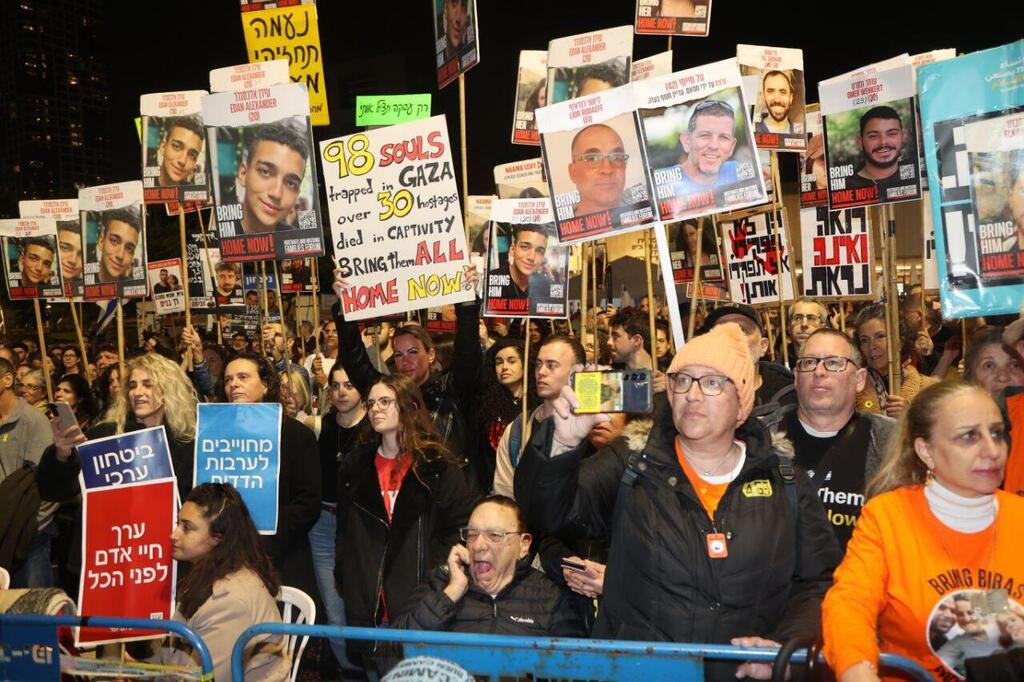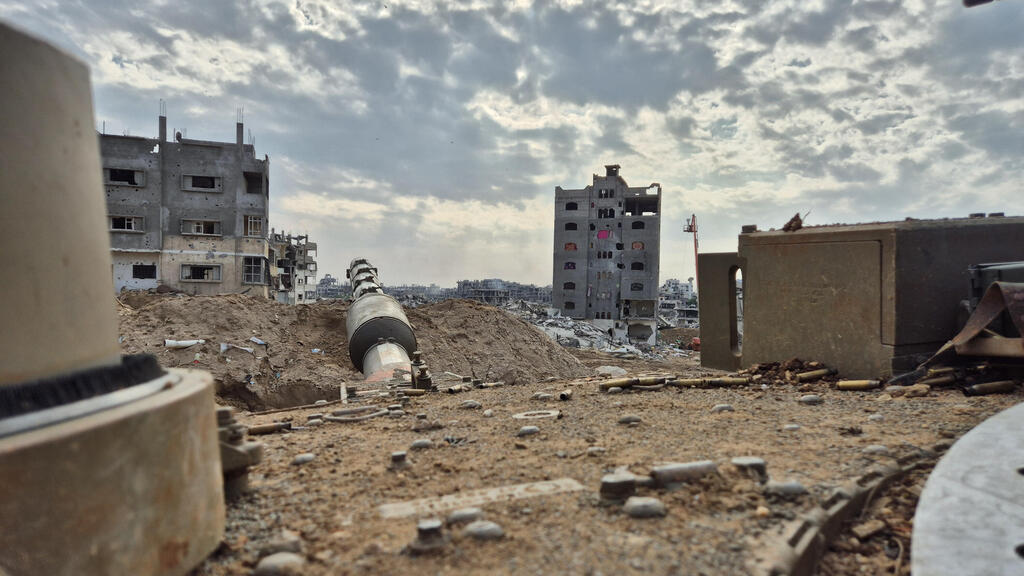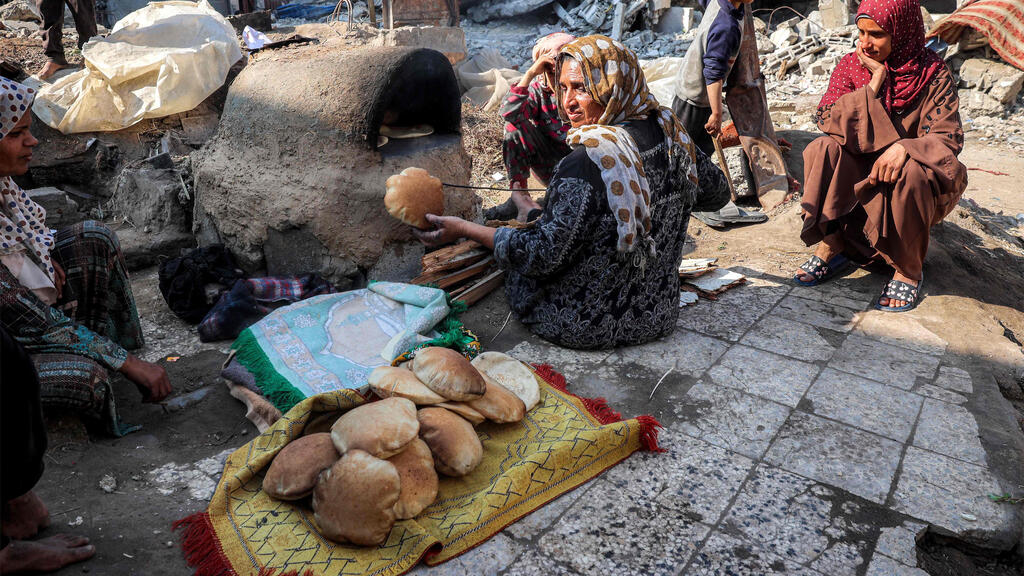Getting your Trinity Audio player ready...
That deal that may be finalized later on Tuesday or in the coming days is the best that could be reached under the circumstances. Its main fault is that it was not reached earlier, during the summer of 2024, but that will remain a matter for historians.
From the Israeli perspective, the benefits of the deal greatly outweigh its disadvantages. First because it facilitates the return of most of the live hostages – described as humanitarian cases - in the first phase. They are the weakest and every additional day in Hamas captivity is critical for them.
Police clash with protesters demanding a hostage release deal
(Zohar Bar-Yehuda )
The outline of the deal also offers a strong incentive for Hamas to release all of the hostages because it includes items pertaining to the day after the war.
Another advantage is that the cease-fire that would be put in place, and the increased humanitarian aid that would be allowed into the Strip, could create pressure on Hamas from the local population, most of whom have been living under inhumane conditions.
This would be a good deal for Israel because it allows for Israeli military pressure to be renewed on Hamas at any time if it does not live up to its commitments. Most significantly, Israel would not have to commit to ending the war after the first phase of the deal, so the threat of renewed fighting can hang over the head of Hamas until all the hostages, both the living and the dead, are released.
Contrary to certain public perceptions, the military pressure exerted on northern Gaza in recent months was the main leverage that led to flexibility on the part of Hamas and made clear to the terror group that it would do well to agree to a deal now, before thousands more of its fighters are killed, and before the IDF advances further and destroys Gaza entirely.
After the first phase of the deal, the IDF can create pressure on Hamas to free the hostages even if its leaders hope to leave some as human shields. Forces will remain on the mile-long perimeter – a security buffer zone along the border with Israel, which would be a staging ground for rapid incursions and attacks should Hamas drag its feet or delay its compliance.
The presence of troops on the perimeter protects residents of the border area from terrorist infiltrations or attacks. The deal provides Israel with international authority to use the buffer zone as a means that was desperately lacking on October 7, 2023.
The humanitarian aid is another leverage in Israeli hands to use over Hamas, and when the new American administration steps in its makeup and scope would no longer be a given. For Hamas, this would be a serious blow because it has used the aid as a means for control over the civilian population and to enlist new recruits.
The Israeli concessions, some as a result of pressure from Donald Trump's envoy Steve Witkoff, yield military and political advantages that were lacking under Biden. Israel's suggestions and requests for armaments for its military would be better received and, more importantly, the U.S. would advance normalization with Saudi Arabia and provide the necessary security arrangements Israel requires in Syria and assist Israel in pressuring Turkey and, by extension, the Islamist regime in Damascus. Trump will also be more attentive to Israel's position in its fight to thwart Iran's nuclear ambitions.
In his warning that failing to agree to a cease-fire would bring serious trouble on the Middle East, Trump may have been directing his words not only to Hamas but also to Israel. A hostage release deal that would end the war in Gaza, as the president-elect wanted, before he took office, could provide significant political and practical advantages in Israel-U.S. relations and in relations with the West in general.
4 View gallery


Steve Witkoff and Donald Trump during the 2024 presidential campaign
(Photo: REUTERS)
But there are disadvantages to the deal, and they cannot be ignored. The release from jail of thousands of Palestinian murderers could bolster the ranks of Islamist terror groups that were depleted during the war in Gaza and the West Bank.
Although the more serious murderers would be exiled, to Turkey, Qatar and even perhaps Egypt, where they would remain under close supervision from local security services, the Mossad, Shin Bet and the IDF would be required to keep a close watch on the prisoners who would be freed, to thwart any attempt to launch attacks or carry out any subversive activity.
Another drawback is the fact that the Nukhba terrorists who invaded Israel during the October 7 massacre are expected to be released, preventing prosecutions against them from going forward, and posing more risk of future attacks.
Get the Ynetnews app on your smartphone: Google Play: https://bit.ly/4eJ37pE | Apple App Store: https://bit.ly/3ZL7iNv
And finally there is the danger that, as in the past, Hamas would not live up to the commitment for the second phase and will hold on to the remaining hostages.
Israeli security officials are aware of the negative implications for the security of Israelis and are already preparing to respond to them.








